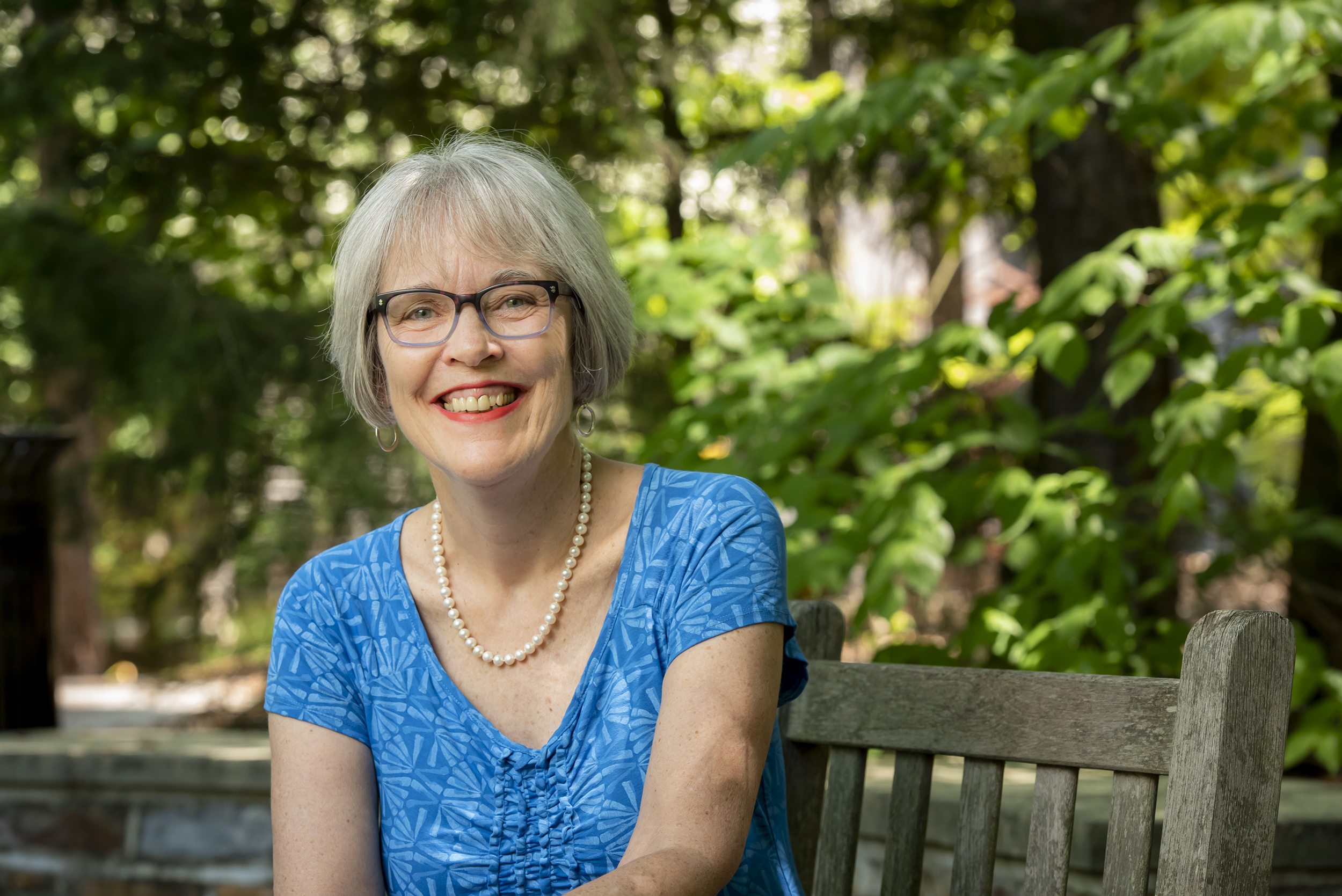Elton John Foundation Honors Advocate for HIV/AIDS Work
Posted on Nov. 11, 2019
The $75,000 grant from the Elton John AIDS Foundation recognized the leadership of Carolyn McAllaster ’72 in providing support to people living with HIV/AIDS throughout North Carolina. (Photo courtesy Duke Law)
When Carolyn McAllaster ’72 retired in June after 31 years on the faculty of Duke University’s law school, she received an extraordinary retirement gift: a $75,000 grant in her name from the Elton John AIDS Foundation to the North Carolina AIDS Action Network, which she founded in 2010.
“His foundation has been a generous supporter of our work,” McAllaster said. McAllaster, who also earned a law degree from UNC in 1976, has been close enough to touch John at the conferences his foundation presents each year but said she has never met him personally or seen him in concert. “No, but I did just see the movie, which was quite good,” she said of this year’s hit biopic Rocketman. “It was very exciting for him to recognize an organization I care so much about.”
The grant recognized McAllaster’s leadership in providing support to people living with HIV/AIDS throughout North Carolina. Her interest in advocacy work began in her undergraduate days, but her life’s work was inspired directly by her brother, Joseph McAllaster, and his experience of living with AIDS for eight years in Boston. He died in 1993, the year after John established his foundation.
In addition to the state organization, McAllaster was director of the Southern HIV/AIDS Strategy Initiative of the Duke Health Justice Clinic. She continues to volunteer.
What will this grant do for the North Carolina AIDS Action Network?
It’s very important to have a strong advocacy group that people know is watching what happens in the Legislature. HIV should not be a partisan issue. Our No. 1 goal is to protect the AIDS Drug Assistance Program, but we’re also watching for managed-care provisions in Medicaid that might hurt people with HIV. Part of this funding will go to a scholarship that will allow advocates to attend [Elton John’s] National AIDs Watch, an event where people with HIV and their allies go to Washington and talk with legislators.
Your interest in advocacy began as an undergrad, before AIDS became a recognized health crisis.
Those years were definitely formative for me. I became involved in Project Uplift, which was started by a legislator named Kelly Alexander [’70 (’70 MPH)] from Charlotte. It brought minority students to campus to introduce them to the idea of coming to college or of coming to Carolina. We had a real issue back then with diversity. This is the 50th anniversary of Project Uplift, so I am thrilled that it’s still going on. … I was in the first class at Carolina law that had a large class of women. I think it was about one-third women, which had not happened before. … We founded a women’s law group, and I worked with the Legislature about a number of issues with women and property rights. Later, in private practice, I represented people with brown lung disease, which was common among people working in cotton mills. It took a lot to get it recognized as a workers’ compensation issue.
With people living longer, more productive lives thanks to medical advances, is there a perception that HIV/AIDS is no longer a concern?
It definitely is not as much on people’s radar. There is a real lack of knowledge about some of the scientific advances. People understand there are great treatments. What they don’t understand is the fact that if you are on medication and stay on it, 100 percent you cannot transmit it to another person. There is still such overwhelming stigma. … There’s still much work to be done.
How does the political climate impact HIV/AIDS advocacy?
The current administration is rolling back many of the protections that gay people and transgender people have obtained. It’s especially difficult because this administration says it wants to end AIDS, but they proposed a rule that would remove discrimination protection under the Affordable Care Act. You can’t end HIV if you’re going to have policies like that.
What do you want your brother’s legacy, and your work, to mean to people living with HIV/AIDS?
I hope that my work and his legacy have resulted in a small slice of increased resources for the South, where the epidemic is really centered now. A lot of what I’ve worked on is anti-stigma work, and I hope it’s at least started some balls rolling. It’s a very difficult problem to take on. It will take … many years to achieve.
— Jill Warren Lucas
Thanks for reading the Carolina Alumni Review
Carolina Alumni members, sign in to continue reading.
Not yet a member? Become one today.
